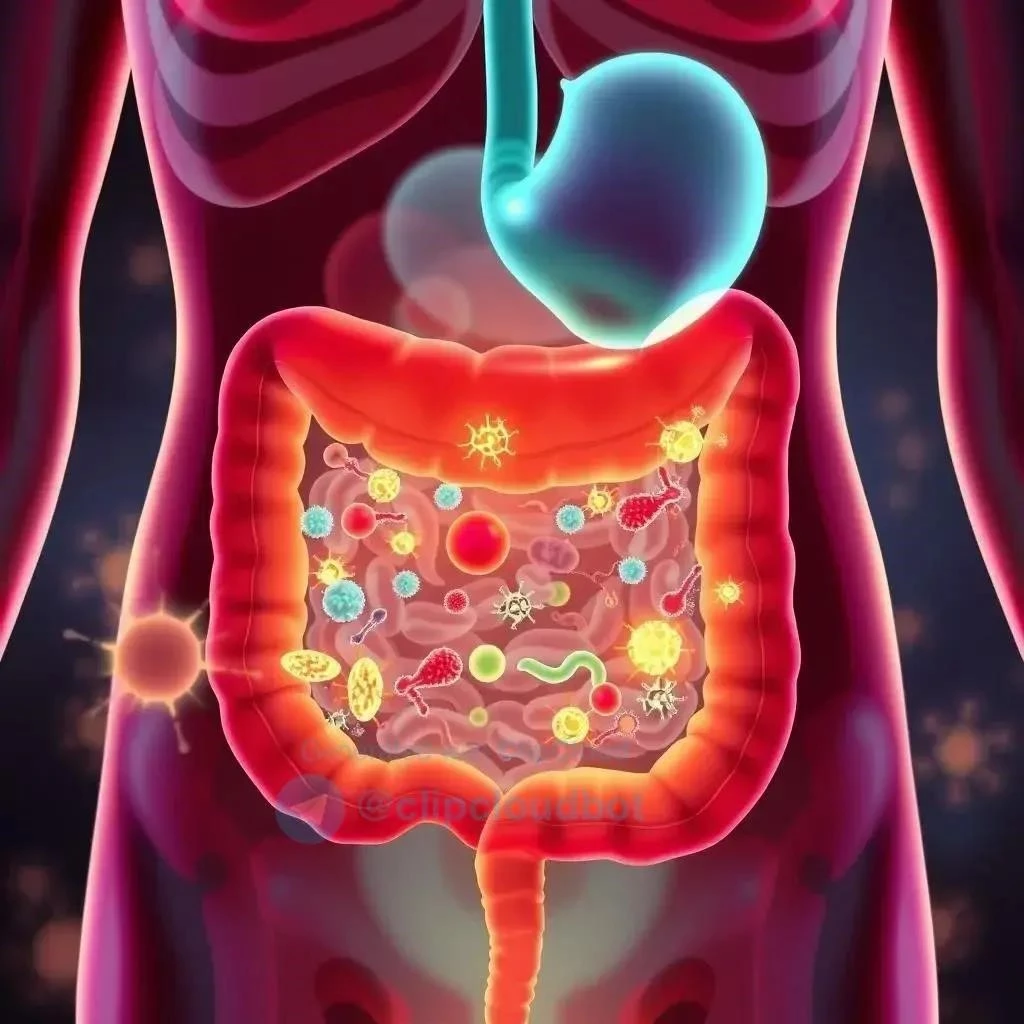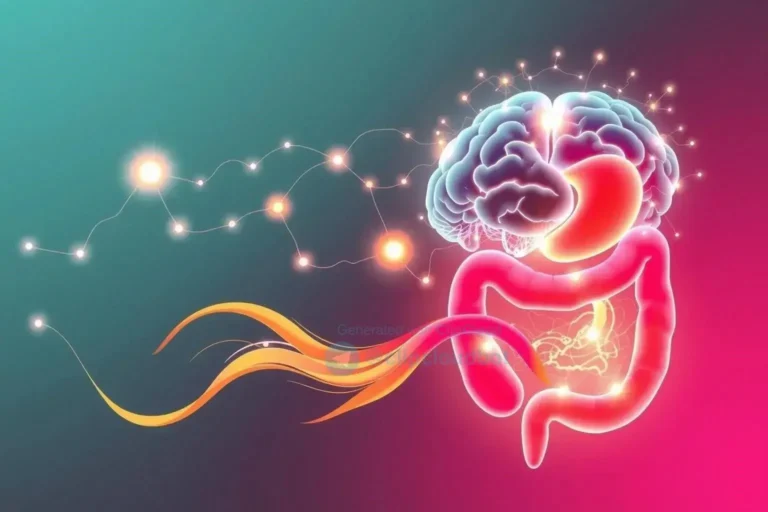Probiotics: A Key to a Healthy Gut
Probiotics, often called “good” bacteria, play a crucial role in maintaining a healthy gut. These live microorganisms, when consumed in adequate amounts, offer a range of benefits for digestive health and overall well-being. They contribute to a balanced gut microbiome, the complex community of bacteria residing in our digestive tract. This intricate ecosystem influences numerous bodily functions, from nutrient absorption to immune responses. Probiotics can help restore and maintain this delicate balance, promoting optimal digestive function and contributing to a thriving gut environment.
Understanding the Gut Microbiome
The human gut is home to a complex and dynamic ecosystem of microorganisms, collectively known as the gut microbiome. This intricate community comprises trillions of bacteria, fungi, viruses, and other microbes, residing primarily in the large intestine. Far from being mere passengers, these microbial inhabitants play a vital role in human health, influencing various physiological processes, from digestion and nutrient absorption to immune function and even mental well-being. Understanding the composition and function of the gut microbiome is crucial for appreciating the impact of probiotics on overall health.
The gut microbiome is unique to each individual, shaped by a multitude of factors, including genetics, diet, lifestyle, and environmental exposures. A balanced and diverse microbiome, rich in beneficial bacteria, is considered a hallmark of good health. These beneficial bacteria perform a range of crucial functions. They aid in the breakdown of complex carbohydrates and fibers that the human body cannot digest on its own, producing short-chain fatty acids (SCFAs) like butyrate, which serve as an energy source for the cells lining the colon and contribute to gut health. Furthermore, these microbes synthesize essential vitamins, such as vitamin K and certain B vitamins, and play a crucial role in modulating the immune system, training it to differentiate between harmless substances and harmful pathogens. They also help maintain the integrity of the gut barrier, preventing harmful substances from leaking into the bloodstream.
Conversely, an imbalance in the gut microbiome, often characterized by a decrease in beneficial bacteria and an overgrowth of harmful bacteria, known as dysbiosis, can have detrimental effects on health. Dysbiosis has been linked to various digestive disorders, including irritable bowel syndrome (IBS), inflammatory bowel disease (IBD), and other gastrointestinal issues. It can also contribute to systemic inflammation, impacting overall health and potentially increasing the risk of chronic diseases. Factors such as poor diet, antibiotic use, stress, and environmental toxins can disrupt the delicate balance of the gut microbiome, leading to dysbiosis and its associated health problems. Therefore, maintaining a healthy and balanced gut microbiome is essential for optimal health and well-being.
Benefits of Probiotics for Digestive Health
Probiotics offer a multitude of benefits for digestive health, primarily by supporting a balanced and thriving gut microbiome. These beneficial bacteria exert their positive effects through various mechanisms, contributing to improved digestion, enhanced nutrient absorption, and reduced susceptibility to digestive disorders. Incorporating probiotic-rich foods or supplements into one’s diet can be a valuable strategy for promoting optimal digestive function and overall well-being.
One of the key benefits of probiotics is their ability to alleviate symptoms associated with common digestive issues like lactose intolerance. Certain probiotic strains, such as Lactobacillus rhamnosus GG, have been shown to improve lactose digestion and reduce symptoms like bloating, gas, and abdominal discomfort. Probiotics can also be beneficial in managing antibiotic-associated diarrhea, a common side effect of antibiotic use. By replenishing the beneficial bacteria depleted by antibiotics, probiotics can help restore the gut microbiome’s balance and reduce the severity and duration of diarrhea. Furthermore, research suggests that probiotics may play a role in preventing and treating infectious diarrhea caused by pathogens like Clostridium difficile.
Probiotics have also shown promise in managing symptoms of irritable bowel syndrome (IBS), a chronic digestive disorder characterized by abdominal pain, bloating, and altered bowel habits. Certain probiotic strains, including Bifidobacterium and Lactobacillus species, have demonstrated efficacy in reducing IBS symptoms, such as abdominal pain, bloating, and gas. The mechanisms by which probiotics exert these beneficial effects are complex and may involve modulating gut motility, reducing inflammation, and influencing the gut-brain axis. While further research is needed to fully elucidate the role of probiotics in IBS management, current evidence suggests they can be a valuable complementary therapy.
Beyond these specific conditions, probiotics contribute to overall digestive health by supporting the integrity of the gut barrier, enhancing nutrient absorption, and promoting regular bowel movements. They aid in the breakdown of complex carbohydrates and fibers, producing short-chain fatty acids (SCFAs) that nourish the cells lining the colon and contribute to gut health. By promoting a healthy and balanced gut microbiome, probiotics play a crucial role in maintaining optimal digestive function and supporting overall well-being. Incorporating probiotic-rich foods or supplements into one’s diet can be a valuable strategy for promoting digestive health and overall well-being.
The Gut-Brain Connection
Emerging research highlights the intricate connection between the gut and the brain, often referred to as the gut-brain axis. This bidirectional communication network involves complex interactions between the gut microbiome, the nervous system, and the immune system. The gut microbiome plays a significant role in this interplay, influencing brain function and mental well-being. This connection underscores the importance of gut health for overall health, including mental and emotional well-being.
Impact of Gut Health on Mental Well-being
The gut-brain axis, a bidirectional communication network linking the gut and the brain, plays a crucial role in influencing mental well-being. Emerging research highlights the significant impact of gut health, particularly the composition and function of the gut microbiome, on various aspects of mental health, including mood, stress response, and even cognitive function. This intricate connection underscores the importance of maintaining a healthy gut for overall mental and emotional well-being.
The gut microbiome communicates with the brain through multiple pathways, including the vagus nerve, a major nerve connecting the gut to the brain, and the production of neurotransmitters and other signaling molecules. Certain gut bacteria produce neurotransmitters like serotonin, dopamine, and GABA, which play critical roles in regulating mood, sleep, and cognitive function. These neurochemicals produced in the gut can influence brain activity and impact mental state. Furthermore, the gut microbiome can modulate the immune system and inflammatory responses, which are also implicated in mental health conditions. Chronic inflammation, often associated with gut dysbiosis, has been linked to an increased risk of depression and anxiety.
Studies have shown a correlation between gut microbiome imbalances and various mental health disorders, including depression, anxiety, and even autism spectrum disorder. Individuals with these conditions often exhibit altered gut microbiome compositions compared to healthy individuals. For instance, people with depression may have lower levels of beneficial bacteria like Lactobacillus and Bifidobacterium species. While the exact mechanisms underlying these associations are still being investigated, research suggests that gut dysbiosis can contribute to inflammation and alterations in neurotransmitter production, potentially influencing the development and progression of mental health disorders.
Furthermore, stress can significantly impact gut health, further highlighting the bidirectional nature of the gut-brain axis. Stressful experiences can disrupt the balance of the gut microbiome, leading to increased intestinal permeability and inflammation. This, in turn, can exacerbate stress responses and contribute to a vicious cycle. Managing stress through techniques like mindfulness, exercise, and adequate sleep can positively influence gut health and, consequently, mental well-being. By prioritizing gut health through a balanced diet, stress management, and other lifestyle modifications, individuals can potentially support their mental and emotional well-being.
Probiotic-Rich Foods for a Thriving Microbiome
Incorporating probiotic-rich foods into your diet is a delicious and effective way to support a thriving gut microbiome and reap the numerous benefits for digestive and overall health. These foods, naturally containing beneficial live microorganisms, offer a diverse range of probiotic strains that can contribute to a balanced and resilient gut ecosystem. By including these foods as part of a healthy eating pattern, you can nurture your gut microbiome and promote optimal well-being.
Fermented foods are a cornerstone of a probiotic-rich diet. These foods undergo a process of lactic acid fermentation, where naturally occurring bacteria convert sugars into lactic acid, preserving the food and enhancing its nutritional value. Yogurt, a popular fermented dairy product, contains beneficial bacteria like Lactobacillus bulgaricus and Streptococcus thermophilus, which can improve lactose digestion and support gut health. Kefir, another fermented milk drink, boasts a wider variety of probiotic strains, including Lactobacillus and Bifidobacterium species, along with yeasts, offering a diverse microbial boost to the gut. Sauerkraut, fermented cabbage, is a rich source of beneficial bacteria, including Leuconostoc, Lactobacillus, and Pediococcus species, and provides fiber and vitamins.
Kimchi, a staple in Korean cuisine, offers a spicy and flavorful way to enhance your probiotic intake. Made from fermented vegetables like Napa cabbage and radish, kimchi contains various lactic acid bacteria, including Lactobacillus and Leuconostoc species. Miso, a traditional Japanese seasoning made from fermented soybeans, provides beneficial bacteria and adds a savory umami flavor to dishes. Kombucha, a fermented tea drink, contains a symbiotic culture of bacteria and yeast (SCOBY) and offers a refreshing and slightly tart beverage with potential probiotic benefits. Tempeh, made from fermented soybeans, is a versatile plant-based protein source rich in probiotics and nutrients.
When choosing probiotic-rich foods, opt for those that contain live and active cultures. Check the label for indications like “live and active cultures” or specific probiotic strain names. It’s also important to store these foods properly, as many are refrigerated to maintain the viability of the beneficial bacteria. Incorporating a variety of probiotic-rich foods into your diet can provide a diverse range of beneficial microbes, promoting a balanced and resilient gut microbiome. Remember to combine these foods with a healthy overall diet and lifestyle for optimal digestive and overall health.






